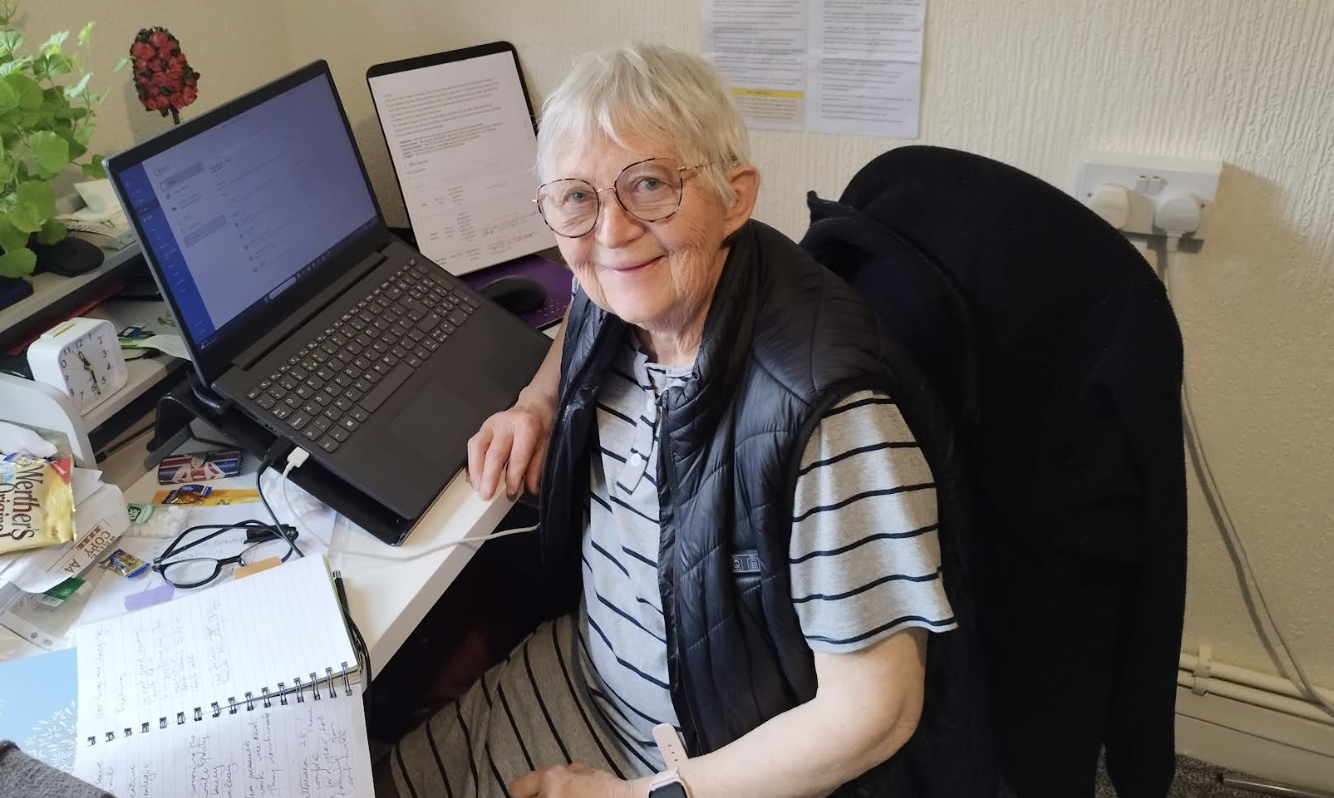Jill Edwards is an online counsellor
What attracted you to become a therapist?
I was 60. I had experienced a great deal of addiction with my children and someone had suggested that I might like to try to become a counsellor. I had a long 40 year career in social work, so I went ahead and trained as an addictions counsellor. I set up alcohol counselling within an agency and was kept very busy. Later I worked in conjunction with the probation service and decided to take my Masters, enabling me to register with the BACP in 1997.
Where did you train?
I trained with Clouds House and worked through my training at Broadway Lodge Rehabilitation House. Later I did my Masters at Bristol University.
Can you tell us about the type of therapy you practise?
I have trained in a wide range of therapy types. Narrative therapy has been a strong influence and I attended a conference in Hong Kong which made a big impression. I practise an integration of person-centred, Internal Family Systems (working with the different voices or parts of a person), some CBT practices and some narrative work.
Really, I work hard to respond to the person in the moment, bringing my experience and empathy for their situation to bear.
How does the way you work help with symptoms of loss?
If we look at loss of relationship, I do not apply any theoretical questions, I simply listen to hear how my client is coping and dealing with the issue. Are they actively wanting to repair the situation, do they have no hope, are they pleased and relieved?
I would use some CBT for the reduction of anxiety, some sleep hygiene recommendations if they have insomnia, and give them some help with redeveloping a healthier lifestyle which will help them to cope, via exercise and looking after them selves physically, seeing their friends etc.
In time we would look to see what other losses the person has experienced and how this may impact their current situation. Their may be a sequence of losses to deal with. I will work to give them the space to experience the range of feelings that loss brings, and understand that this is not insanity, it is just the process. Part of this may include the different parts of the person and how those different parts express themselves.
In the longer term, the person will want to look at where their life is going moving forwards. This may be a time in which the narrative therapy may be useful to integrate the past story with the future they are planning for themselves.
What sort of people do you usually see?
I do really enjoy seeing older clients, but I do not often have the chance. Mostly people are between 20 and 35. I do not see very young clients. I do not think my way of working would suit them.
I mostly see people with relationship problems of one kind or another, and various forms of trauma. I am very interested in working with OCD, it is a very complex problem, but over time I have seen improvements.
Have you noticed any recent mental health trends or wider changes in attitude?
People seem happier to talk about mental health problems now. Many clients are well-read and find and use a lot of self-help material which makes a useful contribution. I have learnt a lot from my clients in this regard.
I have noticed that middle level jobs are very busy and many people are liable over some time to burn out if they continue with them. It is often necessary to change jobs to find relief from this level of demand. I think the demand on people in work has increased.
What do you like about being a therapist?
I work directly one-to-one online. I like this sense being with clients in this way. I find online work is very intimate and helpful for clients.
What is less pleasant?
Sitting for too long and getting a very stiff neck as I channel the stress in that direction.
How long have you been with Welldoing and what you think of us?
I have been with you a couple of weeks and the peer support groups were very friendly and helpful
What books have been important to you in terms of your professional and personal development? Do you ever recommend books to clients?
I have recommended that clients consider the five A’s that David Richo described in his book How to be the Adult in Relationships. The book is a little long, but these ideas are often helpful. These are: Attention, Acceptance, Appreciation, Affection, and Allowing.
I have found the little books produced by the Clinical Psychology Department, Warneford Hospital, Oxford using a CBT background and giving help with anxiety, depression and self-esteem useful for clients.
The books by Jeffrey M Schwartz on brain functioning and OCD have been useful to clients. Brain Lock is the best known.
I have just bought No Bad Parts by Richard C Schwartz. It looks useful and practical.
What you do for your own mental health?
I like gardening, walking, talking to friends, watching rubbish television and reading Buddhist books.
You are an online therapist based in Bristol. What can you share with us about seeing clients in this area?
Well, as I have worked online for five years so my constituency has been the United Kingdom. And it has been as varied as you would expect.
What do you wish people knew about therapy?
That it would help them. That there seems to be some sort of magic in the way life improves when you keep on watching it and taking small actions to make things better for yourself.
What did you learn about yourself in therapy?
Mostly that I have issues that make me want to control people and things and myself.

